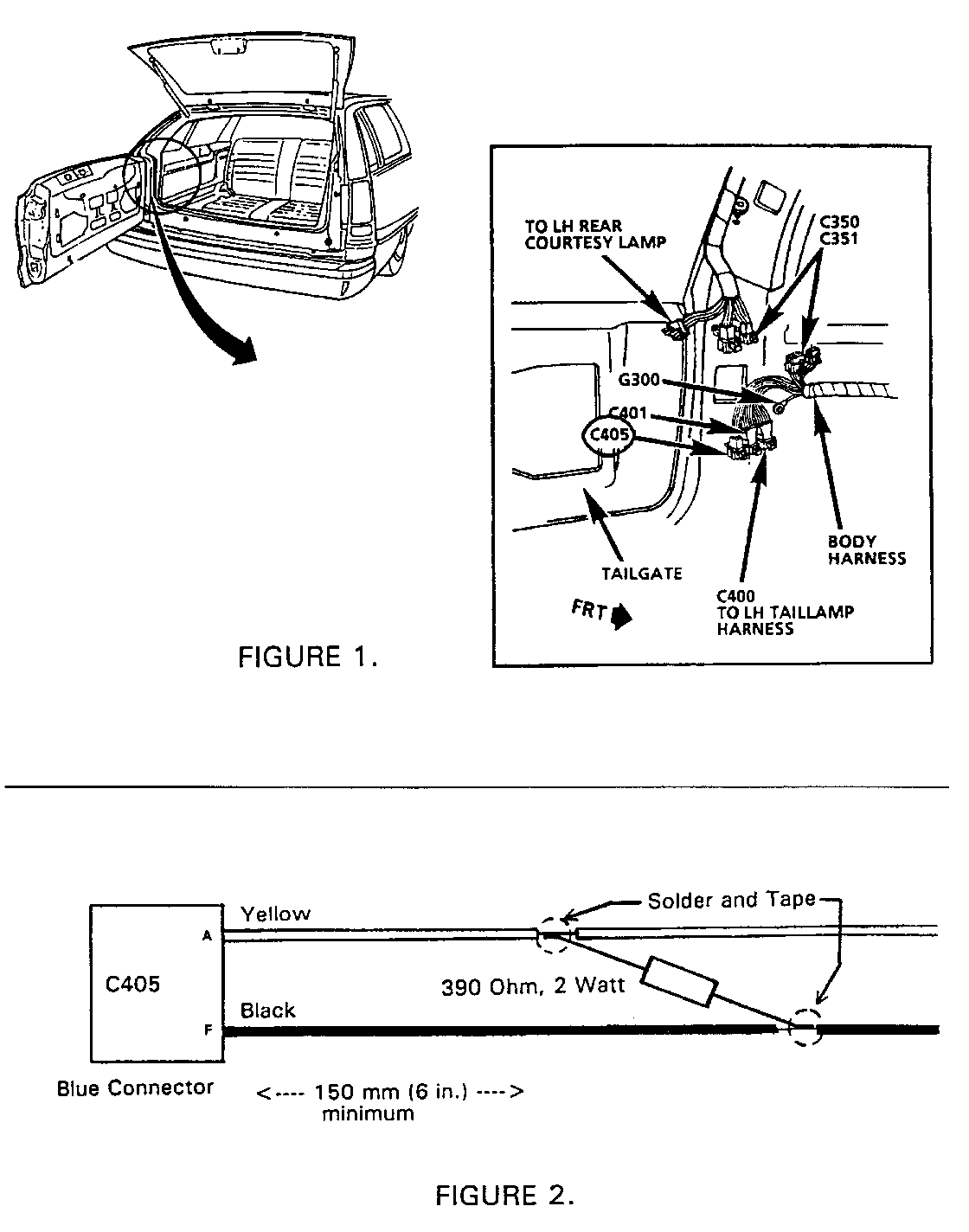INTERMITTENT/NO CRUISE CONTROL - REPLACE CHMSL BULB

SUBJECT: INTERMITTENT OR NO CRUISE CONTROL OPERATION
MODEL and YEAR: 1992-93 CAPRICE
Condition:
The cruise control system may not operate on the 1992-93 B-cars. On wagons, the cruise control may be intermittent, may drop out while driving, or may fail to engage.
Cause:
The ground for the brake switch signal to the cruise control module (part of the stepper motor assembly) goes thru the Center High Mounted Stop Lamp (CHMSL). If the stop lamp bulb is burned out, there will be no ground path for the cruise control. On wagons, the contacts for the CHMSL on the tailgate glass may corrode, causing intermittent operation. Adding a resistor will allow a ground through the brake switch without going through the bulb.
Correction:
On both sedans and wagons, check for operation of the CHMSL bulb. If the bulb is burned out, replace it. This should correct the inoperative cruise condition.
Wagons Only:
1 .Disconnect the negative battery cable.
2. Remove the left rear quarter trim panel, as shown in Section 10-7 of the Service Manual.
3. Locate the blue 8-way connector (C405), as shown in Figure 1. Find the yellow wire in cavity A, and the black wire in cavity F. The complete circuit is shown on page 8A-110-4 of the Service Manual.
4. Obtain a 390 ohm, 2 watt, 5 percent resistor from a local electronics supply store. Splice the resistor from the yellow wire to the black wire, as shown in Figure 2. Be sure to solder the connections, then tape the wires.
5. Reinstall the trim panel, then reconnect the negative battery cable.
Warranty Information:
Labor Operation: N-0768, Time: *CHMSL Bulb Only
Labor Operation: T-1879, Time: 0.3 Hr. To add the Resistor
Material Allowance: $1.00
*Use applicable labor time guide for labor hours.

General Motors bulletins are intended for use by professional technicians, not a "do-it-yourselfer". They are written to inform those technicians of conditions that may occur on some vehicles, or to provide information that could assist in the proper service of a vehicle. Properly trained technicians have the equipment, tools, safety instructions and know-how to do a job properly and safely. If a condition is described, do not assume that the bulletin applies to your vehicle, or that your vehicle will have that condition. See a General Motors dealer servicing your brand of General Motors vehicle for information on whether your vehicle may benefit from the information.
